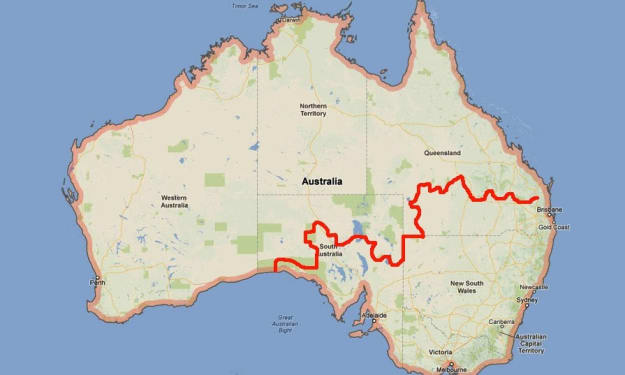Rising Seas: Navigating the Challenges of Sea Level Rise
The Earth's oceans, with their vastness and beauty, have captivated human imagination for centuries.

**Introduction**
The Earth's oceans, with their vastness and beauty, have captivated human imagination for centuries. Yet, the very waters that have inspired poets and explorers are undergoing a profound transformation that demands our attention and action. Sea level rise, driven by a changing climate, is reshaping coastlines, threatening communities, and disrupting ecosystems. This article explores the causes and consequences of sea level rise, the vulnerable regions at risk, and the urgent need for adaptation and mitigation strategies.
**Understanding Sea Level Rise**
Sea level rise refers to the increase in the average level of the world's oceans over time. It is primarily driven by two interconnected factors: the thermal expansion of seawater as it warms and the melting of land-based ice, such as glaciers and ice sheets. The global climate crisis, driven by greenhouse gas emissions, has accelerated these processes, leading to a visible impact on coastal regions.
**Melting Glaciers and Ice Sheets**
The polar ice sheets of Antarctica and Greenland hold vast reserves of ice, a substantial portion of which is now melting at an alarming rate. As ice transforms from solid to liquid, it contributes to rising sea levels. The retreat of glaciers in regions like the Himalayas also contributes significantly to this phenomenon. The cryospheric changes are a stark reminder of the interconnectedness of Earth's systems and the implications of unchecked warming.
**Thermal Expansion and Warming Oceans**
As the Earth's temperature rises due to the accumulation of greenhouse gases, the oceans absorb a significant portion of this heat. Warmer water expands, causing the oceans to swell. This thermal expansion is a major driver of sea level rise and is a clear manifestation of the global consequences of climate change.
**Impact on Coastal Communities**
The consequences of rising sea levels are not distant projections but a present reality for many coastal communities. Small island nations, low-lying coastal cities, and densely populated deltas are particularly vulnerable. As sea levels rise, more frequent and severe flooding occurs, endangering homes, infrastructure, and livelihoods. The increased frequency of extreme weather events, such as hurricanes and storm surges, exacerbates the risks faced by these communities.
**Economic and Social Disruptions**
Sea level rise poses economic and social challenges that extend far beyond immediate flooding. Coastal erosion threatens valuable real estate, tourism, and trade hubs. Forced displacement of populations can lead to social unrest and strain on resources. The consequences are not confined to a single region; they reverberate globally through disrupted supply chains and increased migration.
**Biodiversity and Ecosystem Impact**
The effects of sea level rise extend beyond human populations, impacting delicate coastal ecosystems. Saltwater intrusion into freshwater systems disrupts habitats, threatening species adapted to specific conditions. Mangroves, coral reefs, and coastal wetlands – vital ecosystems for biodiversity and natural protection against storms – face degradation and loss due to changing sea levels.
**Adaptation and Mitigation Strategies**
Addressing sea level rise requires a multi-faceted approach that combines adaptation strategies to cope with existing challenges and mitigation efforts to limit further sea level rise. Coastal engineering projects, such as seawalls and levees, can protect communities from immediate threats. Natural solutions, like restoring and preserving mangroves and wetlands, offer both ecological and protective benefits.
**Sustainable Urban Planning**
In the face of sea level rise, urban planning must adapt to changing circumstances. Strategies include elevating buildings, implementing building codes that account for rising sea levels, and designing urban spaces that allow for natural water flow and drainage. The integration of green infrastructure, such as permeable surfaces and sustainable drainage systems, can play a pivotal role in minimizing flood risks.
**Global Cooperation and Emission Reduction**
The most effective long-term strategy to address sea level rise is mitigating climate change by reducing greenhouse gas emissions. Global cooperation, such as the Paris Agreement, seeks to limit global warming to well below 2 degrees Celsius. By transitioning to renewable energy sources, adopting sustainable practices, and investing in clean technologies, humanity can curb the pace of sea level rise and its devastating consequences.
**Conclusion: A Call to Action**
Sea level rise serves as an undeniable indicator of the Earth's changing climate. The urgency to act is underscored by the present and future impacts on coastal communities, ecosystems, and the global economy. As individuals, communities, and nations, we bear the responsibility to reduce emissions, embrace adaptation strategies, and safeguard vulnerable regions. By joining forces and prioritizing the preservation of our oceans and the livelihoods they sustain, we can navigate the challenges of rising seas and forge a more resilient future. Time is of the essence – the tide of change waits for no one.
About the Creator
kathy rich
Welcome to a realm of boundless insights and creative inspiration. Whether you're looking for engaging storytelling, or information, I'm here to be your ultimate source of information. With a vast array of topics at my virtual fingertips.






Comments
There are no comments for this story
Be the first to respond and start the conversation.